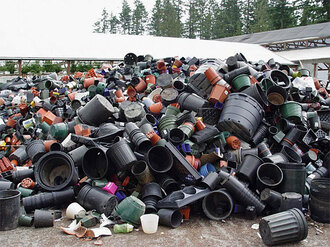-
Remove Official Language barriers towards political participation in NZ by 2020https://www.youtube.com/watch?v=0YoNWym2Lus NZ's official languages are not being utilised enough during Elections and within political party and campaign groups. Not for profit organisations and volunteer groups are having to beg for volunteers or use their own limited funding to cover the cost of NZSL/Te Reo Interpreters at Meet the Candidates events around the country. This is unreasonable to expect NZSL Interpreters to give up their time to volunteer when they need to pay rent, rates, mortgages etc too. This puts Deaf and Hard of Hearing voters/candidates in a position of having limited means of communication to ask questions or give presentations at these events. TVNZ refusing to make available NZSL Interpreters on our state broadcasters Television Election Debates is a prime example of electoral prejudice against voters who depend on an official language to fully participate in a democratic progress. Deaf/Hard of Hearing members need NZSL interpreter and communication support funding that allows them to fully participate within their chosen political party/campaign group throughout the year. We request the Speaker of the House to set aside funding to allow full political party/group participation in an accessible democracy society. Lets make Elections barrier-free for our official languages by 2020.374 of 400 SignaturesCreated by Deaf Action

-
Honour Te Tiriti: #ChangeTheOathThe oath of allegiance, taken by all new citizens, is an important statement on what it means to be a citizen of Aotearoa. Te Tiriti o Waitangi is the nation's founding document, yet the current oath only acknowledges one Treaty partner, the Crown (for more information see http://www.legislation.govt.nz/act/public/1977/0061/latest/whole.html#DLM444038). There is a need for the oath to acknowledge both Māori and the Crown, and to reflect that honouring Te Tiriti o Waitangi is the responsibility of all citizens of Aotearoa. Changing the oath to include a statement on honouring Te Tiriti o Waitangi would: - Recognise Te Tiriti o Waitangi as the founding document of the Nation - Honour both Treaty partners in citizenship ceremonies - Make it clear that honouring Te Tiriti o Waitangi is the responsibility of all citizens of Aotearoa - Encourage new citizens to learn about Te Tiriti o Waitangi and their relationships with tangata whenua - Be one step towards achieving an approach to immigration that recognises Māori rights, responsibilities, and aspirations 'Change the Oath' is a group of Māori and migrants of colour standing in solidarity. The group includes (in alphabetical order) Faisal Al-Asaad, Tahu Kukutai, Ricardo Menéndez March, Pania Newton, Aaryn Marsh Niuapu, Arama Rata, and Julie Zhu.813 of 1,000 SignaturesCreated by Change The Oath
-
Eat Right Be Bright - School Lunch for All Kiwi KidsSign our petition: We are a group of 100+ ordinary Mums from a variety of backgrounds. We believe passionately that all children are our children. That all children in New Zealand, wherever they are, whatever their circumstances, have the right to access their education on an equal footing and to nutritious food to nourish their mind, lives and spirit. We believe a centrally funded, secured, healthy school lunch programme for all is a powerful mechanism for New Zealand to fulfill these obligations to our children, to lift them up and break the poverty cycle. We are deeply concerned that: • 1 in 4 of our kids are living in poverty. • 1 in 3 of our kids are overweight or obese. • 1 in 3 of all kids admitted to Starship Hospital are malnourished to some degree. We know that minimum wage earning and beneficiary families need to spend up to 52% of their income to purchase a basic healthy diet (Otago University Food Costs Survey 2011); some reports put that now at 60%. We know that higher rates of diabetes, obesity, infectious diseases, fatigue, poor mental health, greater psychological stress and poor academic development in children are found where healthy food is less accessible. We know cheap, accessible food is energy rich but nutrient poor meaning children are malnourished whilst also obese. This does currently, and will increasingly, put a chronic strain on the public health system. We know that charities currently reach some children in need with their food programmes (of varying nutritional value) in deciles 1-4 schools. However, they are stretched and they cannot and should not be expected to shoulder the burden in perpetuity when all New Zealanders will benefit from healthy, well educated children. Teachers also tell us that children are going to school without lunch in all deciles or simply not attending school at all due to the shame of not having a lunch to bring. Kids such as Blake (not his real name). He moved to a new school when his family sought refuge in a Womens' Refuge Centre away from his old area. He knew that a charity delivered hot food to his old school two days a week in the winter. The following week after his move, Blake walked 7km to his old school because he knew there would be hot food there on that day. A teacher asked him why he had walked so far back to his old school. Blake answered that it was because he hadn't eaten a meal since he had changed schools and he was hungry. Or, like Ellie (not her real name), who goes to a school in an affluent neighbourhood. She often attends school without a lunch. The teachers started to sneak a lunch, from their own pockets, into her schoolbag as discreetly as they could. Ellie now hands back the teachers' lunch because she would rather be hungry than accept charity from others. We say, this stops now. Only a school lunch for all kids will capture every child in need, free from shame and stigma. All our children will benefit from the health and education uplift provided by a school lunch programme. For the children most in need, that uplift is greatest. Better educated and healthier children benefits all New Zealanders with less children needing doctors and more children being doctors. We know that New Zealand is one of the few countries in the world with no national, government funded school meals programme. In most countries around the world it is uncontroversial, part and parcel of going to school. We believe that all kiwi kids deserve the same social protection and investment in their lives as their global peers. We have decided it’s time to stand up and stand together for our children. It is clear to us that only with a centrally funded programme in all schools and early childhood education centres throughout our country will we reach all children in need, wherever they are, whatever their circumstance, free from shame and stigma. The provision of a school lunch as of right, with dignity, in this way tells a child that we, as a society, value them. The provision of daily healthy and nutritious food in a school lunch sets all children up for a healthier and better educated life. This benefits all of us. Eat Right Be Bright Join us in making change for a brighter future our children. Sign the petition. Find out more ways to help and follow us on: Facebook - @likeamumNZ or Eat Right Be Bright NZ Website - www.eatrightbebright.org.nz Instagram - @eatrightbebright_nz or eatrightbebrightn_z Twitter - @eatrightNZ5,247 of 6,000 SignaturesCreated by Becky Little
-
Auckland needs a Night ShelterCurrently homelessness is increasing faster than the growth of housing supply (Auckland Council Environment and Community Committee, August 2017). This means that with the best intentions of getting people into housing, they will be spending time in inadequate shelter before this happens. A night shelter is needed, alongside initiatives such as the Housing First programme. A night shelter acts as a place of transition for people without a home, where they can have a degree of comfort and security. It is a base from where they can contact their support networks and be put in touch with the various agencies that can provide the assistance they need. As stated by the City Missioner in July 2017, the average life expectancy of a homeless person is 55. Hundreds of people are sleeping on Auckland streets, where it is not safe, and in the winter, it is cold and wet. Michelle Kidd, QSM, a social worker who has been campaigning for a night shelter for many years, described the situation in her open letter to Auckland mayoral candidates on 4 May 2016: "Most of our Homeless are either victims of Auckland’s deepening housing crisis, victims of physical or emotional abuse or neglect, suffer from disability, mental health or addiction issues, have little or no formal education or a combination of such factors. Homelessness is a complex issue for which there is no straightforward answer … "Without a stable base, Homeless people have no access to social services that might otherwise enable them to begin confronting the underlying factors that have resulted in them being on the streets. Further, as long as people are left to live on the streets without any support, they will be exposed not only to the elements but also to harm (such as physical and sexual violence)… "Homelessness in Auckland has become a desperate social issue and the time has come for the city to accept its responsibility for it. While any long-term strategy should be informed by the “Housing First” approach, applied with real success in states such as Utah in the United States, a night shelter will always be the necessary starting point - it represents the foundation on which a broader and more robust framework can be built … "Visitors to Auckland are greeted by the sight of our Homeless on the streets of our city - a stark contradiction to the ‘most liveable’ status Auckland craves. The failure of the city to provide basic human needs is on display for all to see. This cannot be allowed to continue.” References An open letter to Auckland mayoral candidates http://www.nzherald.co.nz/nz/news/article.cfm?c_id=1&objectid=11632965 Watch: moves are afoot to set up a night shelter http://www.newshub.co.nz/home/shows/2017/12/gimme-shelter.html Housing First and night shelters http://www.huffingtonpost.com/mark-horvath/its-not-housing-first-or_b_4536727.html A new volunteer has come to central Auckland to help https://www.stuff.co.nz/national/102019944/Fire-chief-moves-from-idyllic-South-Island-town-to-help-Aucklands-homeless Campaign for night shelter continues http://www.tewahanui.nz/politics/campaign-for-auckland-cbd-night-shelter-continues Watch: Maori TV story about the need for a night shelter http://www.maoritelevision.com/news/regional/alleged-rape-homeless-highlights-need-shelter Watch: TVNZ story about plans for a night shelter in Nelson St, City Centre https://www.tvnz.co.nz/one-news/new-zealand/lawyers-auckland-city-safe-haven-homeless-needs-little-bit-more-funding-make-reality?variant=tb_v_12,309 of 3,000 SignaturesCreated by Audrey van Ryn
-
Swimmable Hātea 2020We get our drinking water from this river, and it is a taonga in the heart of our city. It is a normal expectation for this waterway to be clean, unpolluted, and swimmable. The people of this city want it clean, and living. https://youtu.be/kjp9j7xMUIg About the Hātea Catchment: The Hātea sub catchment of the Whangārei Harbour catchment covers 4,470 hectares (15%) of the greater harbour catchment. Land cover is a mix of urban land uses (including some light industry), exotic forest, indigenous vegetation and pasture. There are no dairy farms in the catchment and most of the pasture area is in lifestyle blocks, with a handful of small (e.g. c.70ha) beef farms. There are approximately 140 properties over 1.5ha in the Otuihau / Whangārei Falls catchment with land in pasture. The upper catchment has pine forestry, which was established originally for soil conservation purposes. Harvesting the areas in this catchment has now been completed and the next rotation has been planted. Two main streams join approximately 1km upstream of the Falls. Most of the catchment has relatively gentle rolling or flat contour and streams are mostly shallow and slow flowing, with clay streambeds. What's the state of the Hātea right now? The Land Air Water Aotearoa monitoring shows that the Hātea is in the worst 50% of all waterways in Northland/Tai Tokerau for E. Coli, Nitrogen, and one indicator of Phosphorus. It is in the worst quarter of all waterways for Ammoniacal Nitrogen - for which human and animal wastes are the major cause. https://www.lawa.org.nz/explore-data/northland-region/river-quality/hatea-river/ What's being done so far? In 2015 Northland Regional and Whangarei District Councils began to focus together on improving water quality at Otuihau. Together they formed a working group which includes representatives from both councils, community groups like Tiki Pride and the Otuihau Community Development Trust, Pehiaweri Marae and Northland District Health Board. They're working together to raise awareness of water quality issues in the Hātea catchment and how individual people can make a difference. Why sign? We agree with the work the councils have begun to change the water quality in the Hātea - what we are hoping to achieve with the submission of this petition is to enable this beginning to be prioiritised so it can be completed in a shorter timeframe, provide sustainable support to those who are working on the project, and set a precedent for other waterway health projects in Northland/Tai Tokerau.206 of 300 SignaturesCreated by Ash Holwell
-
Reduce waste in New ZealandOn 01 January 2018 a Chinese ban on New Zealand waste imports came into force [1]. Aside from meaning thousands of tons more waste either has to go to landfills or be processed here, it brings the spotlight onto our rather poor efforts at recycling, and reducing waste. It has been noted that New Zealand is lacking an up to date strategy fit to deal with the waste issue confronting New Zealand in 2018. A strategy exists, but it is out of date and the Associate Minister for Environment, Eugenie Sage, has acknowledged this [2]. A few days before Christmas, the United Nations criticized our handling of electronic waste. The absence of any significant measures to reduce waste being introduced by the previous Government, means potentially 9 years have passed when New Zealand could have been acting on our growing waste problem. One of the most dangerous waste forms which has been recently highlighted is e-waste. This is waste computer hardware - mouses, keyboards, screens, printers, CPU's, speakers, and so forth - as well as cellphones, microwaves, televisions, alarm clocks, smoke alarms, iPads, the radio systems from cars, sound systems and so on. The International Telecommunications Union (ITU) singled out New Zealand and Australia just before Christmas to say together we produce the highest volumes of e-waste in the world while noting we have among the lowest documented rates for recycling [3]. Here is a list of every day devices and some of the toxic elements in them: SMARTPHONES: Lithium (battery), Silicon (screen), Boron, Antimony, Neodymium, Praesodymium FLAT SCREEN TV: Neon, Xenon SMOKE DETECTOR: Americium LAPTOP/DESKTOP: Beryllium, Lead, Mercury, Chromium MICROWAVE: Beryllium COMPACT DISC: Aluminium DVD PLAYER: Silicon, Aluminium BATTERIES: Lithium, Cadmium There are substantial and long lasting gains to be had that extend beyond a healthier environment. These gains also include healthier soils, water, vegetation and atmosphere. There will be less risk of contaminants leaching into ground water. Economic benefits exist too as a demand for parts, valuable metals and so forth can be extracted and reused with some potential for job creation to enable this work. So let us have this necessary conversation about an out of date framework. Let us get the appropriate framework into place and let us tackle a problem that could rubbish our reputation as clean and green. You may have read "The Lorax", a simple yet brilliant kids story about how a cartoon figure who stood up for the truffler trees, as one by one they were all cut down to make "thneeds". The environmental theme present in the story which you can see below is as important today as it was when the movie was made. https://www.youtube.com/watch?v=8V06ZOQuo0k ---- References [1] http://www.stuff.co.nz/environment/100286427/21m-of-nz-waste-turned-away-from-china [2] http://www.mfe.govt.nz/waste/waste-strategy-and-legislation/new-zealand-waste-strategy [3] https://www.stuff.co.nz/business/industries/99848483/unbacked-body-singles-out-new-zealand-as-an-ewaste-laggard544 of 600 SignaturesCreated by Robert Glennie
-
Save our Precious Drinking WaterNew Zealand is in a dire situation regarding a stable consistent clean safe and consistent drinking water supply. A Government inquiry into the Havelock North drinking water crisis in 2016 has revealed 20% of New Zealand’s drinking water doesn’t meet safety standards.[1,2] In April 2016, the Ministry of Health warned that "the overall burden of endemic drinking water-borne gastrointestinal disease has been estimated at 18,000 to 34,000 cases per year" - but with this sort of illness going often unreported, it could be higher.[3] There are presently in December record temperatures all over the country and these show no sign of abating.[4] High temperatures have been partly causing algal bloom in Taupo, leading doctors to warn the algae may cause rashes, nausea and breathing difficulties. [5] The situation in Napier in the first week of December was dire. Huge amounts of water were drawn off and the supply was left wanting, with some discoloured water. Residents were distressed and lacking information.[6] In the Waitakeres in West Auckland people with tanks are ringing for water and being told it cannot be delivered until after Christmas. On the West Coast there is warnings of a looming problem if the dry weather continues.[7] We ask that the Minister of Local Government direct Local Bodies in New Zealand to adopt a comprehensive standard for safe drinking water and that Local Bodies adopt this standard and monitor the situation during the summer on a daily basis. Communities are nervous about their unstable water supply and cannot trust its quality. A consistent standard must be imposed and accepted as urgent and this standard must be monitored over summer on a daily basis by council staff. This will mean members of the community will feel more secure about their water supply over summer. As part of water monitoring, there must also be water restrictions imposed over the hot summer, the conservation message for water must start immediately. Communities need to be directed to conserve at the right times and know why they are conserving. Restrictions need to be put in place now and not left to the last minute. Communities must have trust that drinking water supply is safe and secure. References 1 - https://www.dia.govt.nz/Government-Inquiry-into-Havelock-North-Drinking-Water 2 - https://www.interest.co.nz/news/91258/government-inquiry-havelock-north-water-contamination-finds-widespread-and-systemic 3 - Douse the water deniers http://www.nzherald.co.nz/opinion/news/article.cfm?c_id=466&objectid=11958203 4 - http://www.stuff.co.nz/environment/98647685/2017-set-to-break-records-for-extreme-weather 5 - https://www.tvnz.co.nz/one-news/new-zealand/safety-concerns-over-algae-in-lake-taupo-causes-ironman-scrap-swimming-leg 6 - https://www.stuff.co.nz/environment/99532411/water-shortage-in-napier-worsens-as-consumption-soars and http://www.nzherald.co.nz/the-country/news/article.cfm?c_id=16&objectid=11953334 7 - https://www.odt.co.nz/regions/west-coast/water-shortage-looms-west-coast713 of 800 SignaturesCreated by Heather and Jerry Tanguay
-
Ban pokies - protect whānauLast year pokie machines took in $890 million from New Zealand communities. This doesn't include the $586 million lost at casinos. The pokie business model is predatory by its nature, relying on the highly addictive design of the machines, and targets people on low incomes. In wealthy areas of our country there is one pokie machine for every 465 people, whereas in poorer areas there is one for every 75 people. This means that much of that $890 million came directly from the pockets of families in hardship. Most recently, the South Waikato District Council approved a site permit for a new mega gambling centre in Tokoroa, a town where many families already face the stresses of unemployment, insecure work and low wages. Former New Zealander of the Year, Dr Lance O'Sullivan has described this plan as "disgraceful" and "predatory". Our Prime Minister, Jacinda Ardern, has said that reducing child poverty is the reason she got into politics, and has taken on specific responsibility for this as the Minister for Child Poverty reduction. Her government has committed to setting bold goals for reducing poverty, and identified a range of policies that would help to do this. One simple step the Prime Minister could take, which would immediately reduce whānau poverty, would be to ban pokie machines in New Zealand. These machines are highly addictive, and do enormous harm to some of the families doing it toughest in our country. This harm is supposedly justified because a portion of the gambling profits is distributed to community and sports groups. This means the families who are worst off in our communities are not only being exploited by predatory gambling businesses, but also that the people least able to do so are subsidising community services that should be funded by everyone fairly, through taxes. This makes no sense at all. Please add your voice to the call on our Prime Minister to protect families from predatory gambling businesses by banning all pokies now. References: Pokie statistics from Problem Gambling Foundation NZ: https://www.pgf.nz/pokie-statistics.html Ban pokies to reduce child poverty, Newshub: http://www.newshub.co.nz/home/new-zealand/2017/11/ban-pokies-to-reduce-child-poverty-lance-o-sullivan-to-pm.html Mega-gambling centre in Tokoroa: https://www.stuff.co.nz/business/industries/99550519/tokoroa-mega-gaming-venue-looks-at-tab1,260 of 2,000 SignaturesCreated by Marianne Elliott

-
Take abortion out of the Crimes Act!The 40th anniversary of this law is a great chance to reflect on whether it's working, and it isn't. In 2017 abortion remains on the Crimes Act [1], and the Contraception, Sterilisation, and Abortion Act requires people seeking an abortion and medical staff to jump through hoops (and often lie) to obtain 'approval' for the procedure [2]. Ninety eight percent of abortions are only 'allowed' on the mental health grounds [3]. This is despite the majority of New Zealanders supporting abortion being totally legal [4]. It's time to reform the law, remove abortion from the Crimes Act, and allow the decision to have an abortion to stay between the person and their GP. References: [1] http://www.legislation.govt.nz/act/public/1961/0043/latest/DLM329351.html [2] https://www.tvnz.co.nz/one-news/new-zealand/watch-kiwi-women-seeking-abortions-have-basically-lie-and-say-theyre-mentally-ill [3] http://www.stuff.co.nz/national/health/8564531/Alter-abortion-law-to-reflect-real-grounds-call [4] http://alranz.org/change-the-law/2017-national-poll-results/13,814 of 15,000 SignaturesCreated by ALRANZ Abortion Rights Aotearoa
-
Stop the industrial water consents!In 2016, some private business owners (including industrial horticulturalists) began applying to Northland Regional Council (NRC) for resource consents to extract water from our aquifer in Te Hiku.[1,2,3] Together known as the Motutangi-Waiharara Water Users Group (MWWUG) they have applied to pump up to 2-million-cubic-metres a year from the Aupouri aquifer, north of Kaitaia. By 'limited' notification on 27 October 2017, NRC announced it was considering these applications. The scale and the ramifications of the proposal from the MWWUG greatly concerns those of us who have been attempting to protect our underground water supply for several decades. We are very concerned that consent decisions will be based largely on financial and profit-making concerns, and fail to give proper regard to important environmental, social and cultural values of this community resource. The industrial avocado industry has been described as a ‘gold rush’, with the perception that NRC allocates water rights on a ‘first-come, first-served’ basis. Such an approach is incompatible with the required “sustainable” management of our precious freshwater resources. Expert peer reviewed hydrology advice says the overall take could lower water tables in some areas on the peninsula by about 2 metres at peak times, and that in turn could affect existing bores and wells.[4] The Northland Environmental Protection Society president Fiona Furrell has said there was insufficient data or monitoring of the aquifer, to allow much more than guesswork on the likely effects of the water-take. She said the greatest danger was salination as the aquifer came under pressure, which would ruin Aupouri's many tiny lakes and wetlands.[5] NRC’s MWWUG aquifer resource consent decision-making process so far has demonstrably failed to meet its good governance and decision-making obligations, especially with respect to tangata whenua/whānau, hapū and iwi. We call on NRC to STOP this consents process unless and until all affected ratepayers, tangata whenua and wider community have had the meaningful opportunity to effectively participate in proper, good faith consultation with NRC about these applications - including comprehensive, transparent engagement about the full effects and implications of the proposed freshwater extraction for (1) our natural environment, (2) our human rights to access safe drinking water, and (3) community well-being. We also call on all responsible authorities, elected officials, business and industry and wider civil society to actively support and encourage NRC to do what's right to protect our aquifer, our human rights to water and democratic decision-making. We are in an age of unprecedented and converging climate, economic, geo-political and other crises which threaten habitat collapse, societal implosion and humanity's very existence. Without water, there is no Life. Therefore, Aotearoa must build local resilience. To achieve this, we must restore and protect our freshwater ways and systems which are under relentless exploitation pressure from business and industry, and in steep decline. All responsible authorities are also obliged to uphold their legal and moral obligations to its citizens and to the natural environment - under Te Tiriti o Waitangi 1840, the Local Government Act 2002, Resource Management Act 1991, the Declaration on the Rights of Indigenous Peoples 2007 and other internationally recognized standards. For more campaign information, see: ♣ Our "Aquifer Protection Action!" page at https://www.catherinemikenn.com/copy-of-community-action; and ♣ Our Facebook page at https://www.facebook.com/groups/1105337399603221/ References: 1 - Limited Notification - Motutangi-Waiharara Water Users Group (MWWUG) https://www.nrc.govt.nz/Consents/Notified-resource-consents/limited-notification-motutangi-waiharara-water-users-group-mwwug/ 2 - Water use worries http://www2.nzherald.co.nz/northland-age/opinion/news/article.cfm?c_id=1503399&objectid=11947026 3, 4, 5 - Water worries as avocado industry spreads to Far North https://www.radionz.co.nz/news/country/343325/water-worries-as-avocado-industry-spreads-to-far-north1,098 of 2,000 SignaturesCreated by Catherine Murupaenga-Ikenn

-
Taihoa on the water bottling plant planned for MuruparaNew Zealand Aquifer, a private company trading as Murupara No 1 and Murupara No 2, in partnership with Te Runanga o Ngati Manawa and an as yet unknown foreign investor is proposing to construct a water-bottling plant in Murupara which would extract up to 18 million litres per day.[1] The creation and expansion of a water export industry on Murupara could have severe and wide-reaching consequences for the management of this critically important public resource. The petitioners ask that the Whakatane District Council cast a wide net to engage the community and the iwi in consultation and to conduct an environmental impact study prior to approving any water consent. There has been no meaningful consultation done with whanau and hapu of Murupara, many of whom have real concerns about this proposal. The company behind the project has a record of failed projects and it’s claims of ‘no impact’ is not realistic with such huge amounts of water being taken. The claims of 500 new jobs also seem exaggerated.[2,3] We ask the Murupara Community Board to resource a community-wide consultation to provide a means by which local residents can contribute to and influence the discussion about this proposed venture. Please support the Murupara community’s urgent request for full transparency and engagement to achieve the best outcome for our pure water source. 1 - Plans to build NZ's biggest water-bottling plant http://www.newshub.co.nz/home/new-zealand/2017/11/plans-to-build-nz-s-biggest-water-bottling-plant.html 2- Missing history in bottling bonanza reports http://www.radionz.co.nz/national/programmes/mediawatch/audio/2018622593/missing-history-in-bottling-bonanza-reports 3 - Ashburton council reneges on controversial water bottling deal http://www2.nzherald.co.nz/the-country/news/article.cfm?c_id=16&objectid=11672314 4 - Director of water bottling plant has yet another attempt http://www.newstalkzb.co.nz/news/national/director-of-water-bottling-plant-has-yet-another-attempt/3,375 of 4,000 SignaturesCreated by Tracey Mapu

-
Let's limit single-use plastic plant potsIf we're banning single use plastic bags why not plastic pots? By growing our own vegetables, fruit and plants we are trying to be more eco-conscious, sustainable and enjoy their benefits - but polluting the environment with plastic waste to do so, does not make sense. One plastics recycling drive by gardening stores in the USA brought in 4.5 tonnes of plastic in each store! [1] While we appreciate that some keen gardeners reuse their plastic pots, most will end up in landfills - this is because many recycling centres do not accept them. There are smaller independent retailers who sell in biodegradable pots which shows it can be done. Many larger retailers are hesitant to change, it's up to us to demand it. We need non-plastic options so we can choose the way we buy our seedlings and plants! 1 - https://www.lowes.com/cd_Garden+Center+Gets+Greener+With+Recycling_283670888_1,529 of 2,000 SignaturesCreated by Monique Russell-Groothuis


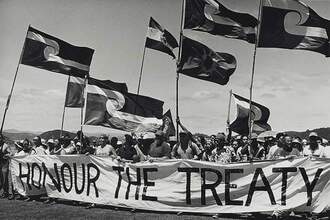

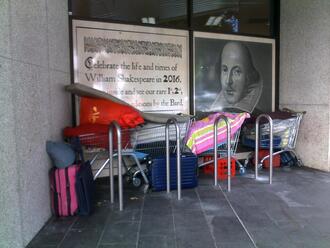



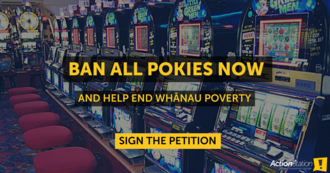
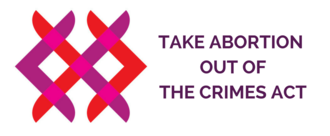
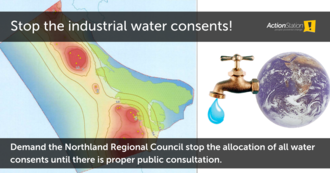.png)

